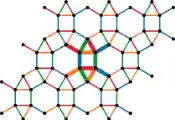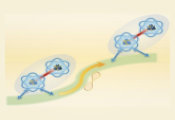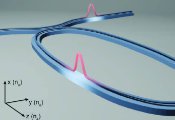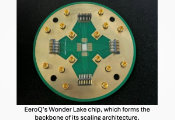WiMi Develops a New Design Solution for Simulating Quantum Computing Concepts Using FPGA
BEIJING, December 17, 2024 -- WiMi Hologram Cloud Inc. ("WiMi" or the "Company"), a leading global Hologram Augmented Reality ("AR") Technology provider, today announced that they announced the development of a new design solution based on FPGA to simulate quantum computing concepts, aiming to provide a more practical and feasible approach for quantum computing research and applications. Quantum computing is based on the principles of quantum mechanics and operates using qubits, offering the potential to surpass classical computers in solving certain specific problems. Although the hardware implementation of quantum computers remains challenging, the unique advantage of quantum computing lies in its parallel processing capabilities and efficiency in solving complex problems. FPGA, as a highly configurable hardware platform, can simulate the fundamental principles of quantum computing at the logical level, providing an effective means to validate and test quantum computing concepts.
WiMi's design solution for simulating quantum computing concepts based on FPGA includes:
FPGA Implementation of Quantum Gate Operations: The fundamental unit of quantum computing is the quantum gate. WiMi has implemented the logical operations of these quantum gates on FPGA. By combining these basic gates, complex quantum algorithms can be simulated.
Parallel Processing Architecture: Traditional sequential logic circuit design methods are inefficient when handling complex problems. While parallel circuit design can increase processing speed, it often requires more hardware resources. WiMi's solution integrates the parallel processing concept of quantum computing to build a new parallel architecture on FPGA, enhancing computation speed while effectively controlling hardware resource consumption.
Resource Optimization: FPGA resources include lookup tables (LUTs), flip-flops (FFs), and block RAM. During the design process, efficient use of FPGA resources is crucial. By applying proper resource allocation and optimization algorithms, WiMi minimizes hardware resource usage while improving overall performance.
Circuit Synthesis and Simulation: WiMi has developed an automated circuit synthesis tool that converts high-level quantum computing descriptions into FPGA logic implementations. Through simulation and verification, the solution ensures the correctness and efficiency of circuit designs.
WiMi's FPGA-based design solution for simulating quantum computing concepts offers significant advantages over traditional solutions. For example, a binary function parity-check circuit was implemented and compared across different approaches. Parity checking, a fundamental error detection method, is widely used in data communication and storage systems. The circuit was implemented using a traditional solution, a parallel solution, and a quantum computing-based solution, and their performances were compared.
In the traditional sequential logic circuit design method, the parity-check circuit operates by bit-by-bit inspection and accumulation. While simple, this approach is slow and inefficient, especially when handling large amounts of data. Meanwhile, the parallel circuit design method improves processing speed by handling multiple data bits simultaneously. However, this method requires more logic units and memory resources, leading to higher hardware resource consumption.
WiMi implemented quantum gate operations on FPGA and designed a parity-check circuit using a parallel architecture. Compared to traditional and parallel solutions, WiMi's approach maintains high computation speed while significantly reducing hardware resource usage. Compared to the traditional sequential logic circuit design method, this approach reduces computation time and improves processing speed by more than 2x. Compared to the parallel circuit design method, it reduces hardware resource usage by approximately 30%. Additionally, WiMi's design solution offers high flexibility, allowing adjustments and optimizations to meet different application requirements. It also provides excellent scalability, making it suitable for simulating more complex quantum algorithms.
WiMi's FPGA-based design solution for simulating quantum computing concepts provides a practical and feasible approach for quantum computing research and applications. In the future, WiMi plans to further optimize the design to enhance circuit performance and resource utilization efficiency. Additionally, the solution will be validated and promoted in more real-world application scenarios, exploring its potential in fields such as data processing, cryptography, and optimization problems. Through continuous innovation and technological breakthroughs, FPGA-based quantum computing simulation is expected to lay a solid foundation for the adoption and application of quantum computing, driving technological progress and industry development.
WiMi has developed a new FPGA-based design solution for simulating quantum computing concepts, successfully synthesizing circuits within FPGA with performance superior to traditional and parallel design methods. Through case analysis and experimental validation, WiMi demonstrated the solution's significant advantages in computation speed and hardware resource utilization. Looking ahead, WiMi will continue to focus on the research and application of quantum computing technology, driving its development and adoption across various fields.




































